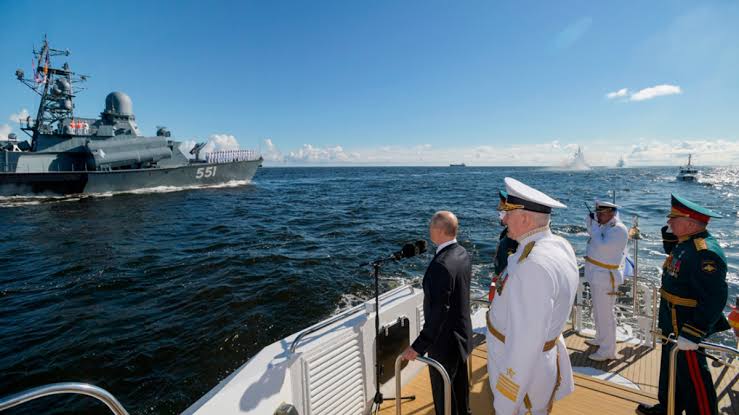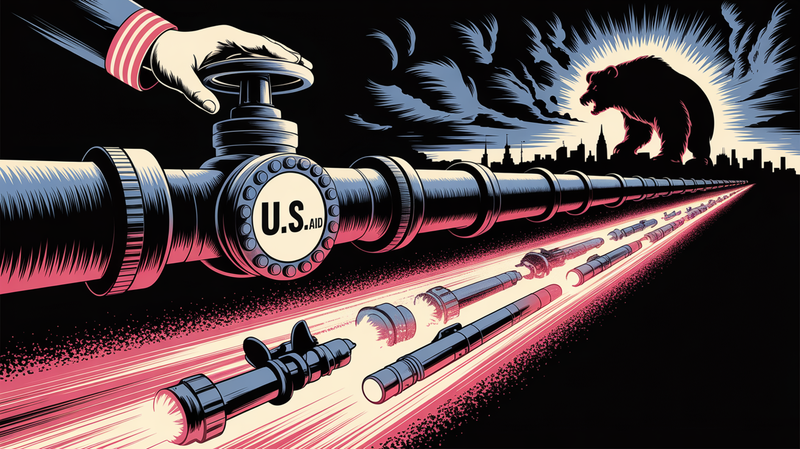Russia Threatens Nuclear Response to Successful Ukrainian Counteroffensive: A Chilling Insight
Former Russian President Dmitry Medvedev, notorious for raising concerns over nuclear conflict around the Ukraine situation, has sounded the alarm once more. He forewarned that Moscow could resort to nuclear weaponry if Ukraine's ongoing counteroffensive proves successful. This disturbing statement, made on his official social media accounts, exposes

Former Russian President Dmitry Medvedev, notorious for raising concerns over nuclear conflict around the Ukraine situation, has sounded the alarm once more. He forewarned that Moscow could resort to nuclear weaponry if Ukraine's ongoing counteroffensive proves successful. This disturbing statement, made on his official social media accounts, exposes the grave escalation risk tied to this complex geopolitical theatre.
As deputy chair of Russia's security council, led by President Vladimir Putin, Medvedev's assertions are not to be taken lightly. He suggested that if Ukraine's offensive, implicitly supported by NATO, succeeded in reclaiming parts of Russia's self-declared territory, a retaliatory nuclear response might be triggered. This potential resort to nuclear weaponry aligns with Russia's nuclear doctrine, allowing for the use of nuclear force in the face of conventional aggression that threatens Russia's existence.
Ukraine's ongoing efforts aim to regain territory that Russia has controversially annexed and unilaterally declared its own, a move that has been widely criticized by Ukraine and the West. Medvedev's inflammatory rhetoric intensifies an already tense situation, reinforcing the severity of the regional instability and the potential for catastrophic escalation.
In related news, Russia's naval power continues to strengthen under President Putin's direction. The announcement of 30 new ships this year signals a significant upscaling of Russia's naval capabilities. Concurrently, Putin remains open to African and Chinese peace proposals but expressed that some elements may be challenging or impossible to implement.
On the ground, violent confrontations persist. A drone attack on Moscow damaged two office blocks, leading to the temporary closure of the Vnukovo airport. Meanwhile, Ukrainian missile attacks reportedly claimed lives and caused injuries in Sumy and Zaporizhzhia. Russia also claimed to have intercepted a Ukrainian attempt to attack Russia-annexed Crimea with 25 drones.
Satellite images recently identified a potential military camp in Tsel, Belarus, which adds another layer to this multifaceted crisis. The camp, seemingly established by the private military company Wagner, comprised approximately 300 tents and 200 vehicles. The ultimate destination of the heavy equipment Wagner used in Ukraine remains uncertain.
Pope Francis has called for the reinstatement of the Black Sea grain deal, highlighting the profound humanitarian impacts of the conflict. The Ukrainian general staff estimates that Russia has lost 245,700 troops since the war began, along with substantial armored resources.
Finally, reports suggest Saudi Arabia will host a Ukrainian-organized peace summit in early August, representing a glimmer of hope amid the escalating tensions and mounting losses. As the world watches anxiously, the necessity for diplomatic solutions becomes ever more apparent.




